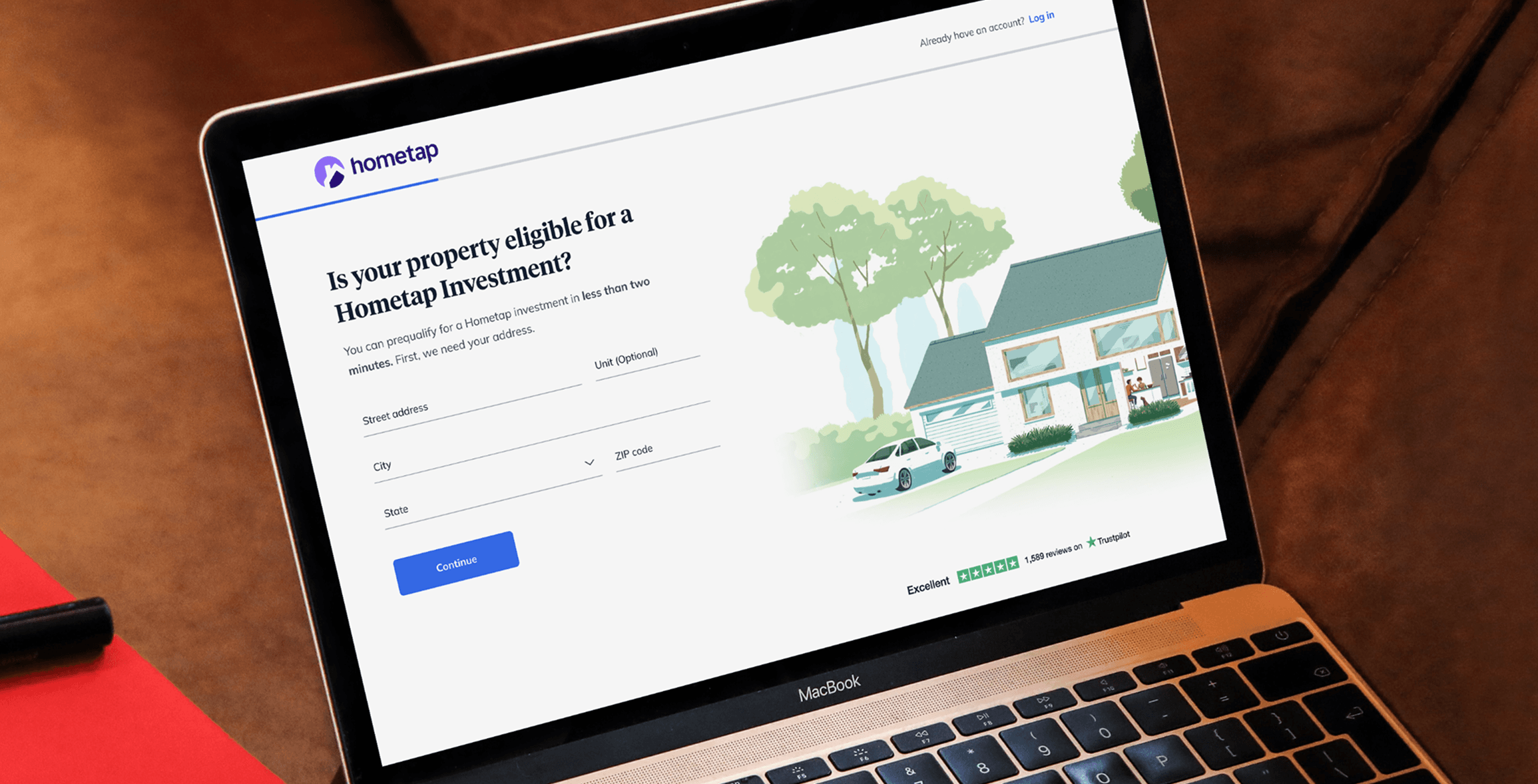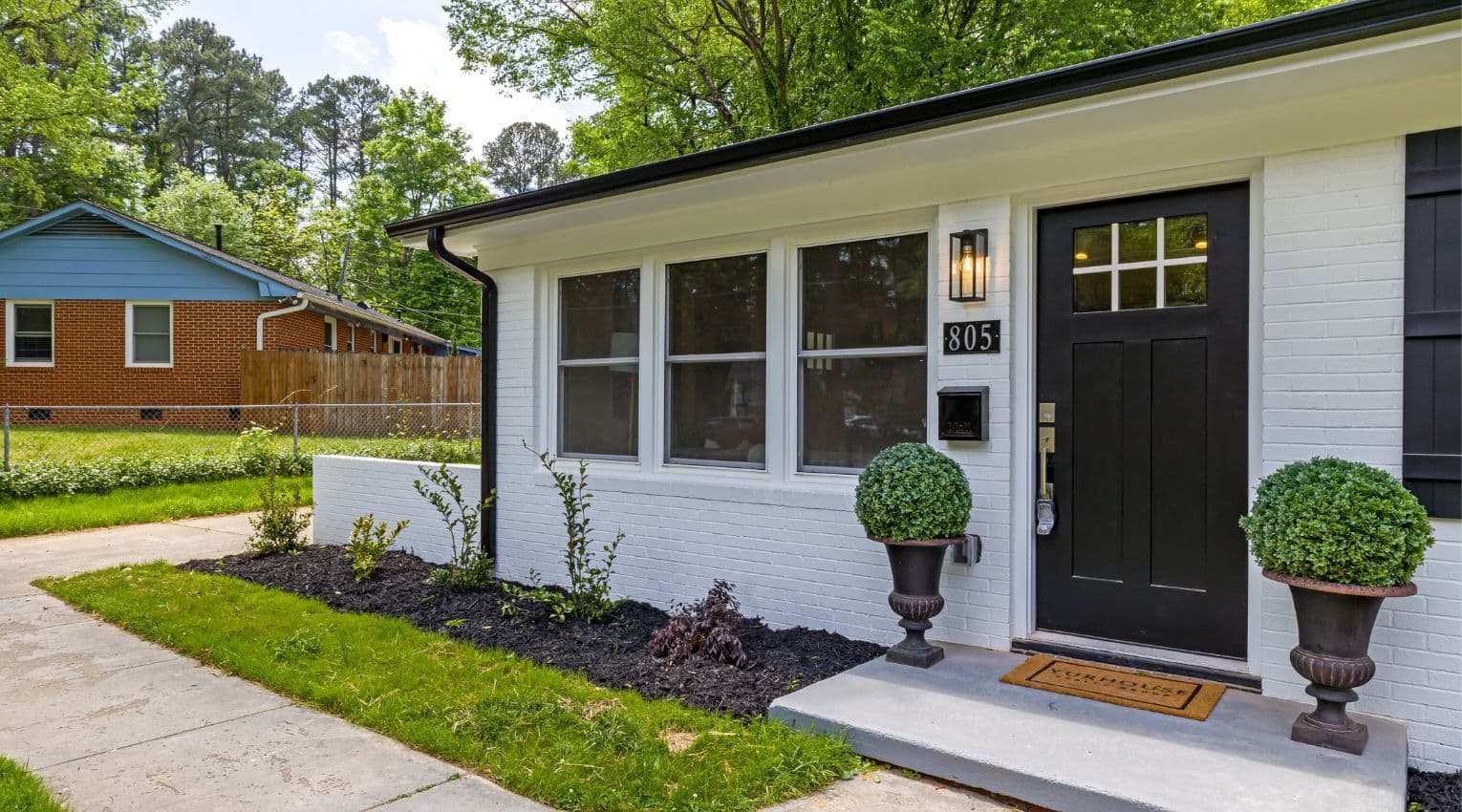What Is a Home Equity Investment (HEI) and Is It Right for You?

When it comes to accessing home equity, many homeowners are familiar with traditional financing options, like home equity loans, lines of credit (HELOCs), and cash-out refinances — but still might not be aware of home equity investments, which allows them to receive cash in exchange for a percentage of their home’s future value.
Determine your current financial situation and goals and compare them to these common scenarios to find out when it does — and doesn’t — make sense to consider one.
What Is a Home Equity Investment?
A home equity investment (HEI), sometimes referred to as a shared equity agreement, a home equity agreement, or a home equity investment loan, is a financing solution in which home equity investors provide homeowners with a lump sum of cash in exchange for a percentage of the home’s future value.
The biggest factors that differentiate a home equity investment from a typical loan are that there are no monthly payments and no impact to a homeowner's debt-to-income ratio. These products are also structured differently in terms of what is owed at the end of the term, which we'll cover in detail below.
For many homeowners — especially those who are self-employed, otherwise limited by the often restrictive qualification criteria of standard financing options, or don’t want to or are unable to take on another monthly payment — a home equity investment can be an innovative and smart solution for accessing otherwise illiquid home equity.
How Does a Home Equity Investment Work?
The home equity investment process can vary based on the company, but they generally follow one of two models: the share of home value model or share of appreciation model.
With the share of home value mode, which Hometap uses, the HEI originator provides the homeowner with a lump sum of cash in exchange for a stake in the future value of the home. At the end of the investment term, or when the homeowner decides to repurchase the stake or sell their home, the homeowner pays an agreed-upon percentage of the home’s current market value to the originator. If the home depreciates in value within the term, the percentage owed will be less, and the investor may not make a profit.
With the share of appreciation model, the HEI originator provides the homeowner with a lump sum of cash in exchange for a percentage of the home’s future appreciation amount (rather than the value). At the end of the investment term, the homeowner pays the original investment amount, plus a variable percent of the home’s appreciation, to the originator. Companies who use this model (e.g. Point, Unison) typically use what’s called a risk-adjusted starting home value when calculating their share of the home’s appreciation.
Regardless of the model, the application and approval process remains relatively similar across the board:
- Homeowners typically request an estimate from the company to find out how much of their home’s equity they might be eligible to access. Investors will typically require that the homeowner maintain a certain percentage of their home equity.
- They complete and submit an application, which usually requires some supplemental materials like mortgage statements.
- If approved, they receive funding — often in a matter of weeks — and can use the cash for whatever they’d like.
- They have a set period of time in which to settle the investment (usually 10–30 years) through a buyout with savings, refinance, or sale of their home. During this time, there are no payments due to the home equity investor.
Is a Home Equity Investment a Good Idea?
Like any financing solution, the right choice for you all depends on your own financial situation and goals, and home equity investments don’t make sense for every homeowner. Consider your answers to the following questions — if yes, a home equity investment might be worth exploring.
Do You Have an Immediate Cash Need?
If you’re short on liquid money, you can fund your financial need by taking on a home equity investor. For example, you can use the funds from the investment to pay off your credit card debt, particularly cards with high interest. The funding timeline is fairly quick, and the application process can be completed online.
Do You Want to Avoid Additional Monthly Payments?
If you don’t want to make additional monthly payments, you may want to take a closer look at home equity investing. Because home equity investments are just that — an investment — there is no monthly payment involved. As such, you’re not obligated to settle the investment until the end of the term. This can be appealing to small business owners and real estate investors, for example, who are looking for funding without impacting their cash flow.
When to Reconsider Home Equity Investments
You Want to Stay in Your Home 10+ Years
If you know you want to stay put, you may not want to take on a home equity investor. Most home equity investment products, including Hometap, have an effective period of 10 years, meaning you’ll need to pay the investor’s share when the effective period is up or sell your home. There are other ways to settle the investment, such as using savings, refinancing, or using a loan, but it’s a smart idea to have a plan in place for your settlement.
You Don’t Have Enough Equity
If you don’t have enough equity in your home, you won’t be able to enter a home equity investment agreement. According to NerdWallet, homeowners typically have half their home paid for prior to entering an equity investment agreement. Most home equity investors will require you to maintain a percentage of your equity. Not sure how much equity you have in your home? Create your free Home Equity Dashboard and start tracking your home value and equity.
How Do Home Equity Investments Compare to Other Financing Options?
There are a number of ways to access your home equity beyond a home equity investment, and all have pros and cons. It pays off to do your homework about each so you can make the right choice for you.
Home equity loans
A home equity loan offers predictable monthly payments due to its fixed interest rate, and like a home equity investment, you’ll receive the cash in a lump sum. This solution often makes the most sense if you’re looking to fund a big renovation project or major one-time expense. While there may be interest payments attached, they could be tax-deductible if you’re putting them toward renovations. However, you’ll be responsible for a monthly payment on top of your mortgage, and it can be challenging to qualify for a home equity loan with a credit score under 680.
Home equity lines of credit (HELOCs)
HELOCS offer quite a bit of flexibility when it comes to funding, as they give you access to as much cash as you want (under a set limit) as often as you’d like — similar to a credit card where you draw money on an as-needed basis. However, the variable interest rates mean that monthly payments can be unpredictable, and your lender can freeze your HELOC at any time if your credit score or home value drops too low.
Cash-out Refinance
With a cash-out refinance, you take out a new mortgage on your home with a larger balance than you owe on your current one. On the plus side, you might be able to secure a lower interest rate, which will make your monthly payments lower. However, since you’re taking out a new mortgage, you’ll be resetting your mortgage term length and you’ll be responsible for paying application, closing, and origination fees, plus title insurance and potentially an appraisal. Application and approval criteria can also be fairly restrictive.
Reverse Mortgage
A reverse mortgage can be a good option for homeowners hoping to retire more comfortably. However, there are some unique restrictions to consider. You’re still responsible for insurance payments and taxes, and are required to remain in the home for the life of the loan. Reverse mortgages also have an age requirement of 62+, which automatically rules it out for many.
Below, you’ll see a quick comparison chart that covers the similarities and differences between these options, and you can learn more here.
How Can Homeowners Use a Home Equity Investment?
Homeowners can use the cash from their home equity investment for anything they’d like, including to:
Pay Off Debt
One of the most common reasons homeowners access their equity is to pay off debt, especially from credit cards. A home equity investment can help them make it happen faster since there aren’t any monthly payments.
Renovate Your Home
Home improvements and renovation projects are also one major reason why homeowners tap into their equity. Since the cash is provided in a lump sum, and often within weeks, it can be especially helpful for big improvements with a tight timeline.
Buy a Second Home
Some homeowners use a home equity investment to put a down payment on an investment property or vacation home. Whether it’s to secure a summer getaway spot for your family, bring in rental income, or diversify your real estate portfolio, it can help you reach your goal without a loan.
Fund Your Business
If you’re seeking funds to jumpstart or expand your business, minus the hassles (and added monthly payments) that come along with business loans — like challenging qualification criteria and impacts to cash flow — a home equity investment could be a solution.
Live Comfortably in Retirement
Your home equity can help pad your retirement fund and assist with costs you need some extra help handling, like healthcare.
Fund an Education
College tuition is getting steeper every year; tapping into your equity could help you cover your child’s education.
Diversify Your Portfolio
A well-rounded portfolio includes a variety of investments that spans stocks, bonds, mutual funds, and real estate so you may decrease the risk of a loss in any particular area. A home equity investment can be a smart and easy way to build out your portfolio using an asset you already have.
Fund Your Growing Family
Expanding your family means that costs can add up fast. Your home equity can help fund the costs of your growing family and their needs.
Get Emergency Funding
When life throws you a curveball, whether it’s a medical issue or another unwanted surprise, it helps to have quick access to cash when your emergency fund isn’t cutting it. Your home equity may be able to help you, and relatively fast.
How Can I Get a Home Equity Investment?
The exact process and qualification criteria for receiving a home equity investment varies by company, but you’ll generally begin by requesting an estimate to determine how much of your home’s equity you might be eligible to tap into, and complete an application that provides more information about you and your home. You’ll usually need to have a minimum amount of equity built up in your home, and a minimum credit score to qualify.
If approved, you’ll receive your funds in the form of a lump sum of cash, and you can begin putting them toward anything you’d like.
If you’re interested in learning more about how Hometap’s home equity investment works, head to How it Works for a detailed breakdown of our specific process, or visit our FAQs for answers to our most-asked questions about everything from applying to settling.
Ready to find out how much of your home’s equity you could access with a Hometap Investment? It only takes a couple minutes.
You should know
We do our best to make sure that the information in this post is as accurate as possible as of the date it is published, but things change quickly sometimes. Hometap does not endorse or monitor any linked websites. Individual situations differ, so consult your own finance, tax or legal professional to determine what makes sense for you.




